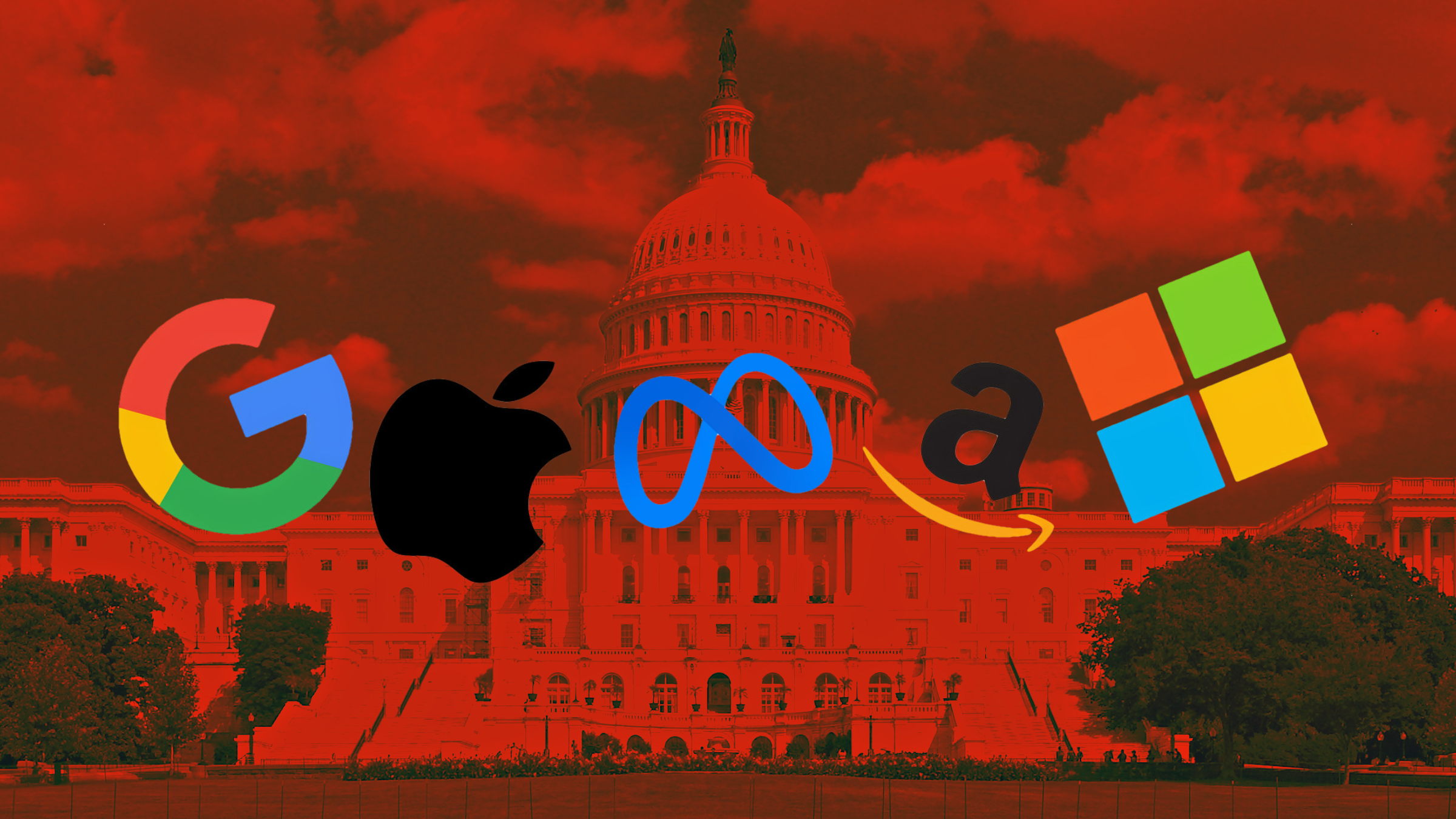
After years of talk about the need to break up the major tech companies, the Department of Justice (DoJ), along with a number of states, are finally getting their opportunity to make a case against Google. Beginning Tuesday, government prosecutors will face off against what’s sure to be an army of highly paid lawyers representing the tech conglomerate. They’ll spar over whether Google abused its dominant position in search to kneecap competition and ensure it couldn’t be dislodged once it had risen to the top.
If anything, the past year has given us a prime example of how solid Google’s position is, regardless of wider market dynamics. The company controls about 90% of the search market, even as there’s a broad recognition that the quality of its search results have plummeted. When people turn to it for help these days, they’re more likely to get a list of SEO-optimized trash instead of anything useful.
As ChatGPT rose to prominence and was quickly tied into Microsoft products, there was a wave of discourse about the threat a chatbot-enhanced Bing would pose to Google. ChatGPT was the next big thing, and while Bing may have struggled in the past, the large language model was supposed to finally give it a fighting chance. The reality is that the refreshed Bing didn’t make much of a dent in Google’s market share, even as the search giant bungled the rollout of Bard, its response to ChatGPT.
The Google trial will be one to watch. It will show us whether the US government can really take on the power of some of the biggest companies in the world. If the DoJ is successful, the remedies against Google could limit its ability to stop future competitors and set a precedent that could be used against its fellow tech goliaths. The Federal Trade Commission (FTC) is reportedly poised to launch an assault on Amazon later this month too.
However, while the effort to “Break Up Big Tech” has made progress, the battlefield has shifted since late 2010s when the effort to target the monopolistic practices of the tech companies rose to prominence. In that moment, the halo that protected Silicon Valley from effective scrutiny was finally dimming and there were plenty of stories about the misdeeds tech companies had been able to get away with for years. That galvanized a movement ready to pounce, and forced others to reconsider their positions on the industry.
While the criticism continues, the bigger picture has changed. The focus in that moment was largely on the domestic impacts of consolidated tech power, but the new concern that has swept Silicon Valley and Washington, D.C. alike is the broader geopolitical threat posed by China’s rise — and how that specifically plays out in the domain of technological competition. That’s complicated the effort to take on tech’s power, and has created a divide on what to do about the US tech giants.
The mixed success of tech antitrust
If we look around the world, we can see that other countries, particularly in Europe, have been much more proactive at taking on US tech companies than the US government itself. From the General Data Protection Regulation to the more recent Digital Markets Act, the European Union has been reining in the influence of US multinational tech firms for several years with some success. Australia has got into its own fights with Silicon Valley companies, and Canada is the most recent to face their wrath, with Meta pulling news in response to a new law to compel it to pay local news publishers.
But in the United States, progress on the antitrust front has been harder to come by. Earlier this year, states lost a battle to go after Meta’s social media monopoly. The FTC recently lost an important fight against Microsoft with its massive takeover of Activision Blizzard, and didn’t sue to stop Amazon’s recent acquisitions of MGM Studios and OneMedical. A number of bills aimed at curtailing the power of the tech companies were also making their way through Congress, but intense lobbying by the tech industry ensured they were delayed long enough for Republicans to retake the House, meaning there’s little hope of them passing in the near future.
Why this divergence? There’s no denying that the major tech companies are incredibly powerful, but it’s easier for the EU or various other countries to go after Google, Amazon, or Meta for the simple reason that they aren’t domestic companies. By regulating the US tech giants, the EU isn’t reducing the competitiveness of one of its own firms. Instead, it’s hoping to create a more even playing field that helps to promote the development of European tech companies precisely because it’s restricting powerful US competitors.
For the United States, the calculus is quite different. Certainly, there are domestic drawbacks to the power the tech companies have accrued: Google’s data collection machine and accusations Facebook enabled election interference, along with broader worries like Uber and Amazon degrading the conditions of workers and Apple’s power over its App Store. There’s been a lot of talk about these issues in the United States, including by prominent politicians. But that’s not the only concern the US government has when it comes to the tech industry.
How the US defends Silicon Valley
The piece of the puzzle many tech commentators often neglect is how US tech companies also play an important international role that uniquely benefits the United States and means it has a different perspective than other countries looking to take on the power of Big Tech. When the internet was privatized in 1995, the dominant narrative was that the network would enable a whole slew of companies to challenge the power of the state while empowering the individual. The truth is that there wasn’t nearly such a clear divide.
As the internet spread internationally, it took the US tech companies that got a head start on foreign competitors and had much easier access to capital with it. Counter to the narrative of tech libertarians, that also helped spread the power and influence of the US state around the world by ensuring that before foreign governments could step in to regulate the nascent digital sector, it would already be effectively dominated by US multinationals. It’s not uncommon for countries to restrict foreign ownership in the telecommunications and media industries, but it was hard to extend those rules to the internet when US firms had already taken over its key functions.
Despite the talk of tension between the US government and tech companies, it defends their interests on the international stage. The US government levels veiled (and not-so-veiled) threats when countries threaten to tax and regulate its tech companies. For example, as Canada has moved forward with content regulations on streaming services and plans for a digital services tax, top US officials have spoken out about possible challenges to those regulations. They did the same when Australia planned its own digital services tax a few years ago, ultimately forcing the Australian government to ditch the policy.
The United States also ensures Silicon Valley’s tech firms get favorable protections in the “free trade” agreements it signs with countries around the world, including the United States-Mexico-Canada Agreement and the US-Japan Trade Agreement. Those measures ensure that in exchange for greater access to the US market, countries need to guarantee light regulation of US tech companies, restricting what foreign governments can do to protect the rights of their citizens in the future.
Tech enhances US global power
Using tech to increase the global influence of the US government was always part of the plan, regardless of the libertarian narratives that shaped how the public thought about the tech industry. All the way back in 1989, then-Senator Al Gore said, “the nation which most completely assimilates high-performance computing into its economy will very likely emerge as the dominant intellectual, economic, and technological force in the next century.” It was under his tenure as vice president that the internet was privatized and commercialized, and used as a global means of “soft power” to expand the influence of the United States, as Daniel Greene explains in The Promise of Access.
As a result, the United States has a clear incentive to protect the international power it derives from the global reach of its tech companies, regardless of the domestic challenges they may pose. Now that China has been recast from the United States’ factory for cheap goods and primary debt buyer to a geopolitical rival that’s challenging its technological dominance — the very thing Gore identified as being key to the continuation of US hegemony into the twenty-first century — it only makes the effort to apply antitrust measures to the tech companies more difficult.
Silicon Valley billionaires and their supporters argue the consolidated power of their tech firms will be necessary to effectively compete against large Chinese tech companies and defend US technological supremacy. US government officials and tech executives feel the global market for internet services belongs to them and countries around the world need to accept having their digital economies dominated by US multinationals. But given the harms those companies have caused, it’s no surprise that many countries are looking at alternatives and increasingly calling out the relationship as a form of “digital colonialism.” If those countries can’t develop their domestic capacities, they’re more open to seeing what Chinese firms have to offer.
China is able to challenge US technological dominance because it has a lot of resources to put into research and development, given it’s a rapidly growing economy with the second largest population in the world, but also because it didn’t buy into the neoliberal notion of internet policy the US promoted to ensure its companies could go global in the 1990s and 2000s. The Great Firewall is often positioned as a censorship measure — and it certainly is used in that way — but it’s also a protectionist policy that insulated domestic firms from global competitors so they had the room to develop and could eventually reach the point where they pose a real threat to US capital.
There are occasional scary stories about how countries like Russia and Iran are trying to replicate something like China’s Great Firewall that only focus on the censorship aspect of the policy, yet they’re very clearly also trying to promote domestic tech innovation. I’d argue we can see EU competition measures in a similar light: they’re trying to restrict the power of US tech firms not just to protect their residents, but also to provide more space for European competitors to have a chance to grow. In their case, it may prove to be too little, too late.
Challenging tech’s power
While I don’t think antitrust and competition policy are the silver bullet to addressing the harms emanating from Silicon Valley, I do think breaking them up or otherwise limiting their power are essential if we’re to ever imagine — and try to realize — a different way of organizing technology that works for the public instead of billionaires and corporate shareholders. That’s part of the reason why the Google antitrust trial will be so important to watch; to see what chance this strategy has to succeed in the United States.
Whatever the outcome though, we need to be aware of the challenges the US government faces in reining in the tech industry and how successfully Silicon Valley has spun geopolitical rivalry with China to its advantage. The truth is that many of the claims the US makes against Chinese tech firms, including everything from mass surveillance to user manipulation, are all things its own tech companies have done to all of us — and for people who live outside the United States, claims of the positive impact of US tech often ring hollow.
Our strategies for taking on the power of the tech industry also need to account for how that power is wielded. By helping push the idea that China is a threat to the US position at the top of the global hierarchy, major tech companies not only lessening the chance they’ll be broken up, but ensured the ties between Silicon Valley and the Pentagon will be strengthened. Not only does that risk scuttling antitrust plans; it’s enabling a new wave of harmful tech to be rolled out with government backing. That’s an alliance we desperately need to stop.





Member discussion